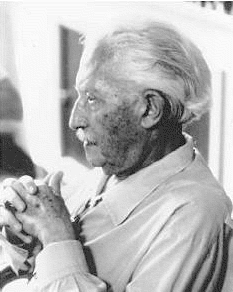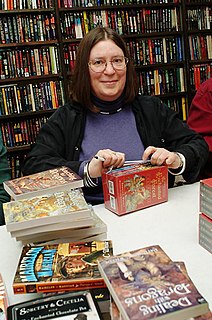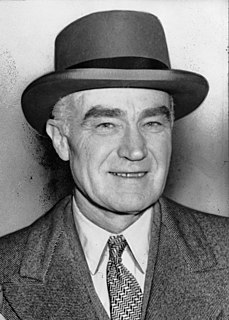A Quote by Henri Matisse
The artists must see all things as if he were seeing them for the first time. All his life he must see as he did when he was a child.
Related Quotes
But the reason I call myself by my childhood name is to remind myself that a scientist must also be absolutely like a child. If he sees a thing, he must say that he sees it, whether it was what he thought he was going to see or not. See first, think later, then test. But always see first. Otherwise you will only see what you were expecting.
You see a child play, and it is so close to seeing an artist paint, for in play a child says things without uttering a word. You can see how he solves his problems. You can also see what's wrong. Young children, especially, have enormous creativity, and whatever's in them rises to the surface in free play.
We must feel toward our people as a father toward his children; yea, the most tender love of a mother must not surpass ours. We must even travail in birth, till Christ be formed in them. They should see that we care for no outward thing, neither liberty, nor honor, nor life, in comparison to their salvation... When the people see that you truly love them, they will hear anything from you...Oh therefore, see that you feel a tender love for your people in your hearts, and let them perceive it in your speech and conduct. Let them see that you spend and are spent for their sakes.
There must be a solemn and terrible aloneness that comes over the child as he takes those first independent steps. All this is lost to memory and we can only reconstruct it through analogies in later life....To the child who takes his first steps and finds himself walking alone, this moment must bring the first sharp sense of the uniqueness and separateness of his body and his person, the discovery of the solitary self.
This is the most important lesson you must learn about magic," Miss Ochiba went on. "There are many ways of seeing. Each has an element of truth, but none is the whole truth. If you limit yourselves to one way of seeing, one truth, you will limit your power. You will also place limits on the kinds of spells you can cast, as well as their strength. To be a good magician, you must see in many ways. You must be flexible. You must be willing to learn from different sources. And you must always remember that the truths you see are incomplete.
It is part of the photographer's job to see more intensely than most people do. He must have and keep in him something of the receptiveness of a child who looks at the world for the first time or of the traveler who enters a strange country We are most of us too busy, too worried, too intent on proving ourselves right, too obsessed with ideas to stand and stare Very rarely are we able to free our minds of thoughts and emotions and just see for the simple pleasure of seeing. And so long as we fail to do this, so long will the essence of things be hidden from us.
To see life. To see the world. To watch the faces of the poor, and the gestures of the proud. To see strange things. Machines, armies, multitudes, and shadows in the jungle. To see, and to take pleasure in seeing. To see and be instructed. To see and be amazed. (Describing the powers of photography; written for the launch of LIFE Magazine, 1936.)
A child is an eager observer and is particularly attracted by the actions of the adults and wants to imitate them. In this regard an adult can have a kind of mission. He can be an inspiration for the child's actions, a kind of open book wherein a child can learn how to direct his own movements. But an adult, if he is to afford proper guidance, must always be calm and act slowly so that the child who is watching him can clearly see his actions in all their particulars.








































